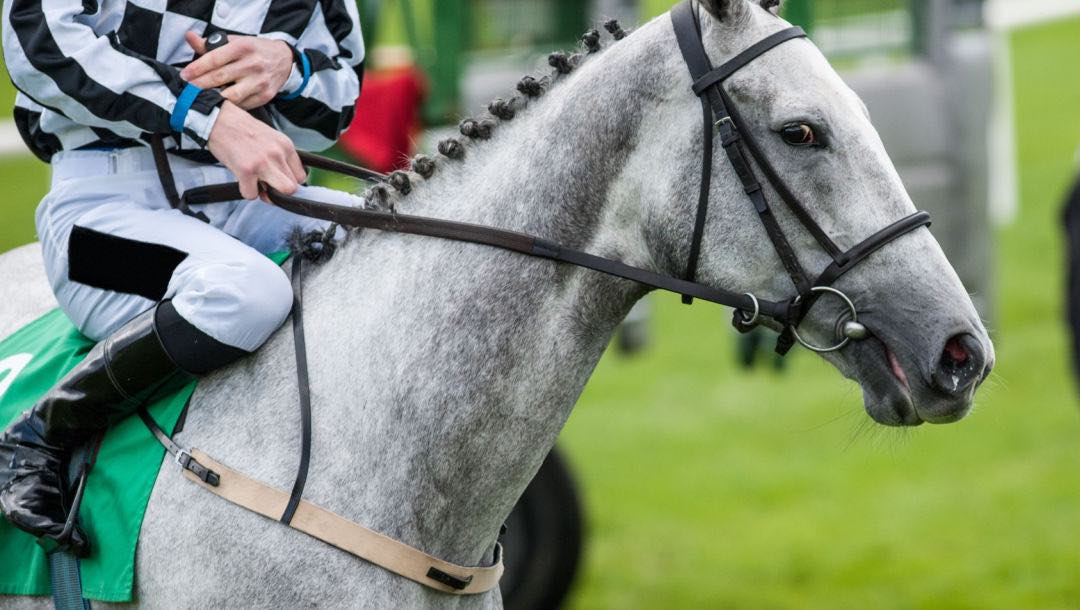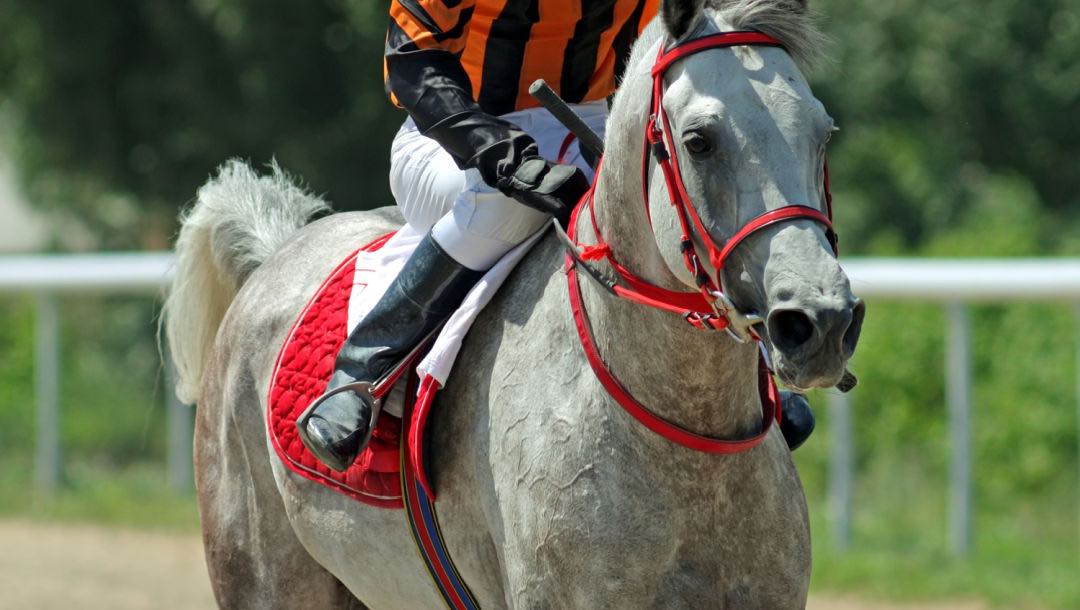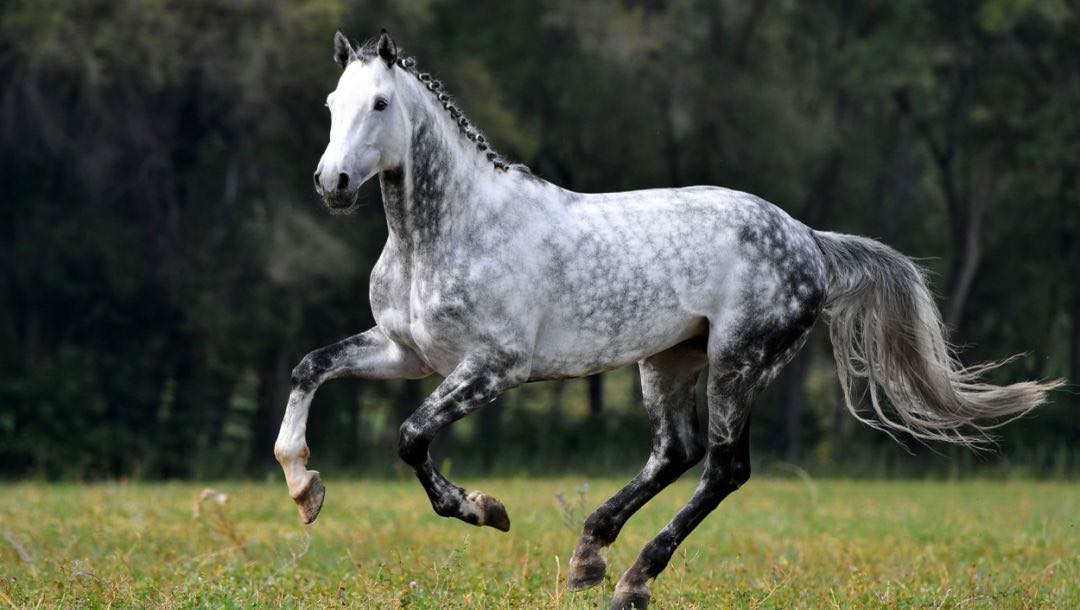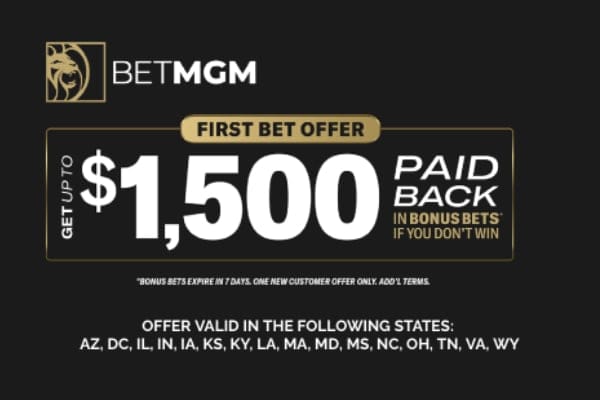Gray horses are some of the more striking animals in the horse racing industry, and if you’re an avid online sports betting fan or you bet on horse racing, you’ll know that they aren’t the most successful either.
In fact, only three gray horses have ever won a Grand National. Every time a gray horse runs in a Grand National, it causes a stir with punters and racegoers alike, with many wondering if this could be the fourth gray to take home the prestigious trophy. So, what is the deal with gray horses? Let’s take a look.
Where do gray racehorses come from?
The curiosity of where gray horses originate from has never truly been satiated, but many genetic historians and equine bloodstock professionals believe that they were introduced to the Western world in the early eighteenth century.
Arabian stallions were shipped across to Europe as Thoroughbred breeding stock and Arabian horses are known to have more grays than other breeds. One sire in particular, Alcock’s Arabian, has been traced as the origin of these gray horses from around 1720.
Of course, one parent in a racehorse’s pedigree must be gray for the genetic trait to pass down further in the lineage.
Gray horses aren’t born that color
Gray foals don’t appear that way when they are born. Normally they are either dark brown or black in color, but white hairs soon come through their coats and they start to turn their signature gray.
Some people might confuse white and gray horses when they are young, but white horses actually have pale skin. Gray horses, on the other hand, are born with darker skin, like the more common bay and chestnut horses.
Grays are susceptible to melanomas
There was a time when breeders and racehorse owners were reluctant to invest in gray horses. This is because there was a myth that they are more susceptible to illness than horses of other colors.
In fact, the origin of this myth is the fact that grays are more likely to develop benign melanomas on their skin from the age of 10.
Breeders started to take more notice of grays after three famous wins brought the coat color into the spotlight. Now, most know that they are not more likely to pick up an illness than any other type of horse.
Their temperament

For many decades (and in many current circles), it was believed that gray horses have a more uneasy and difficult temperament. They were considered to be nervous horses. However, many studies have shown that you can’t really rely on a horse’s coat color to determine its temperament.
What was discovered in a study in Iceland, however, was that gray horses tend to be more cautious when approaching new situations, such as changes in their environment. This is most likely because gray and white horses are more likely to have congenital ocular anomalies, which is a fancy way of saying that their eyesight isn’t always excellent.
The three Grand National grays
The color of a horse certainly doesn’t skew the horse racing odds, but as mentioned earlier, only three grays have ever won a Grand National. These included The Lamb, Nicolaus Silver, and Neptune Collonges.
The Lamb in 1868 and 1871
The most successful gray horse in the Grand National is The Lamb, who won not just one but two titles. The small horse was originally purchased as a family pet but soon showed that he was too frisky for his young rider. The vet who owned him then took him for training and he won the Grand National in 1868 at the age of six. He would have been too young to race in the Grand National nowadays, as it is for seven-year-old horses or older.
The Lamb didn’t race the next year due to a clerical error and he suffered from an illness that kept him out of the races in the next, but he was fit for the 1871 race, in which he came first.
Nicolaus Silver in 1961

The unusually named Nicolaus Silver was purchased by Charles Vaughan after his original owner passed away. Vaughan believed that he would be better off racing on the firmer surfaces in the UK compared to the sodden turf in Ireland and he was proved to be quite correct.
Nicolaus Silver was ridden by Bobby Beasley and upset the doubters who had given the horse measly odds to win. He went on to beat the 34 other horses in the race and became the first gray in over 100 years to win the Grand National.
Interestingly, Charles Vaughan went on to marry none other than the granddaughter of one of The Lamb’s owners.
Neptune Collonges in 2012
It was another half a century before there was a gray back on the winner’s podium at the Grand National. Born in 2001, Neptune Collonges was a successful young horse, but he was forced out of action for the whole of the 2009–2010 season with an injury suffered at the Cheltenham Cup. Recovery from injury in the horse racing world is quite rare and it’s even more unusual for the horse to continue succeeding afterward.
Despite being wildly unfancied by the bookies for the 2012 Grand National, Neptune Collonges seemed to take his recovery in his stride. Even a last-minute jockey change due to a fall wasn’t enough to throw him off his stride. He won the race with the closest finish ever in the competition and was then immediately retired. His competitive career wasn’t over, however. He went on to become quite a successful dressage competitor for his owner’s daughter.
Bet on NYRA Racing and more with BetMGM
Horse racing is one of the most exciting kinds of online sports betting and BetMGM has plenty of options to keep you busy. Whether you’re looking for NYRA bets or something further abroad, our horse betting odds have got you covered.
Register and place your horse racing bets with BetMGM.










